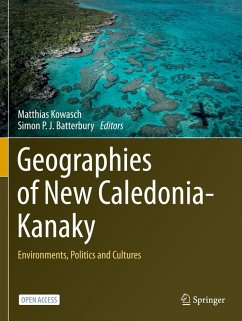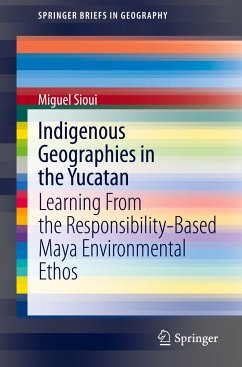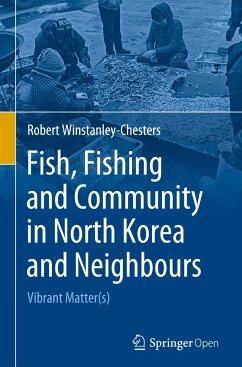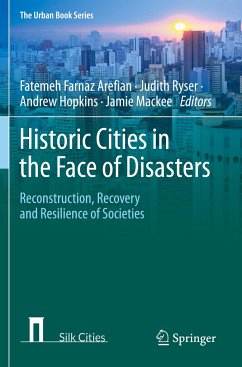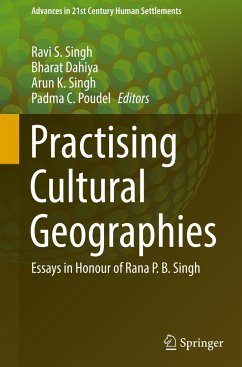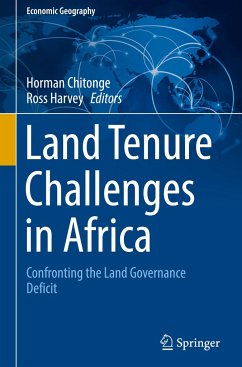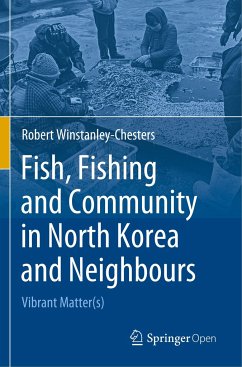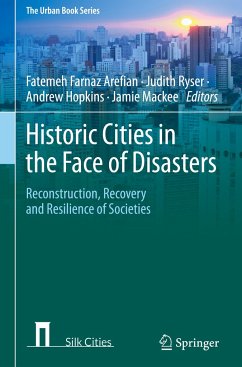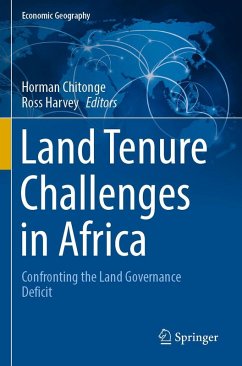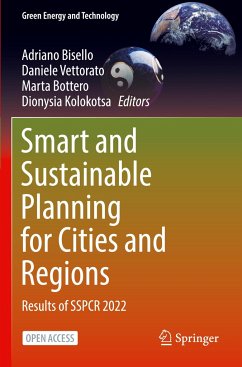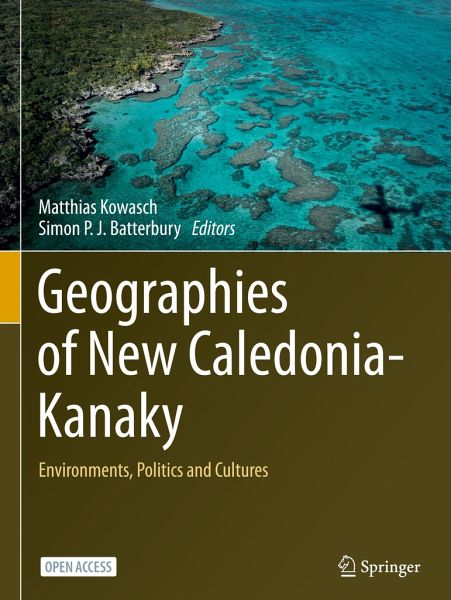
Geographies of New Caledonia-Kanaky
Environments, Politics and Cultures
Herausgegeben: Kowasch, Matthias; Batterbury, Simon P. J.
Versandkostenfrei!
Versandfertig in 6-10 Tagen
38,99 €
inkl. MwSt.

PAYBACK Punkte
19 °P sammeln!
This open access book provides a unique overview of geographical, historical, political and environmental issues facing the French overseas territory New Caledonia, also called "Kanaky" by the indigenous Kanak people, who outnumber citizens of European and other origin. New Caledonia has seen a long and complex struggle for decolonization, but is still on the United Nations' list of "Non-Self Governing territories" and there is little sign of change following three referendums on independence and extensive negotiations with France. The archipelago possesses around a quarter of the world's nick...
This open access book provides a unique overview of geographical, historical, political and environmental issues facing the French overseas territory New Caledonia, also called "Kanaky" by the indigenous Kanak people, who outnumber citizens of European and other origin. New Caledonia has seen a long and complex struggle for decolonization, but is still on the United Nations' list of "Non-Self Governing territories" and there is little sign of change following three referendums on independence and extensive negotiations with France. The archipelago possesses around a quarter of the world's nickel deposits, giving it additional strategic importance when demand for the mineral is strong. The islands have unique biodiversity, and Caledonian coastal lagoons have been listed as UNESCO world heritage sites since 2008. The book offers detailed insights into the environmental and human geographies of the archipelago, with a focus on the linksbetween environmental protection and extensive mining operations, between political independence struggles and continued wellbeing and economic development, and the differing visions for the future of the islands. This multidisciplinary volume, one of the few to appear in English, appeals to researchers, students and policy makers across the environmental, social and political sciences.



